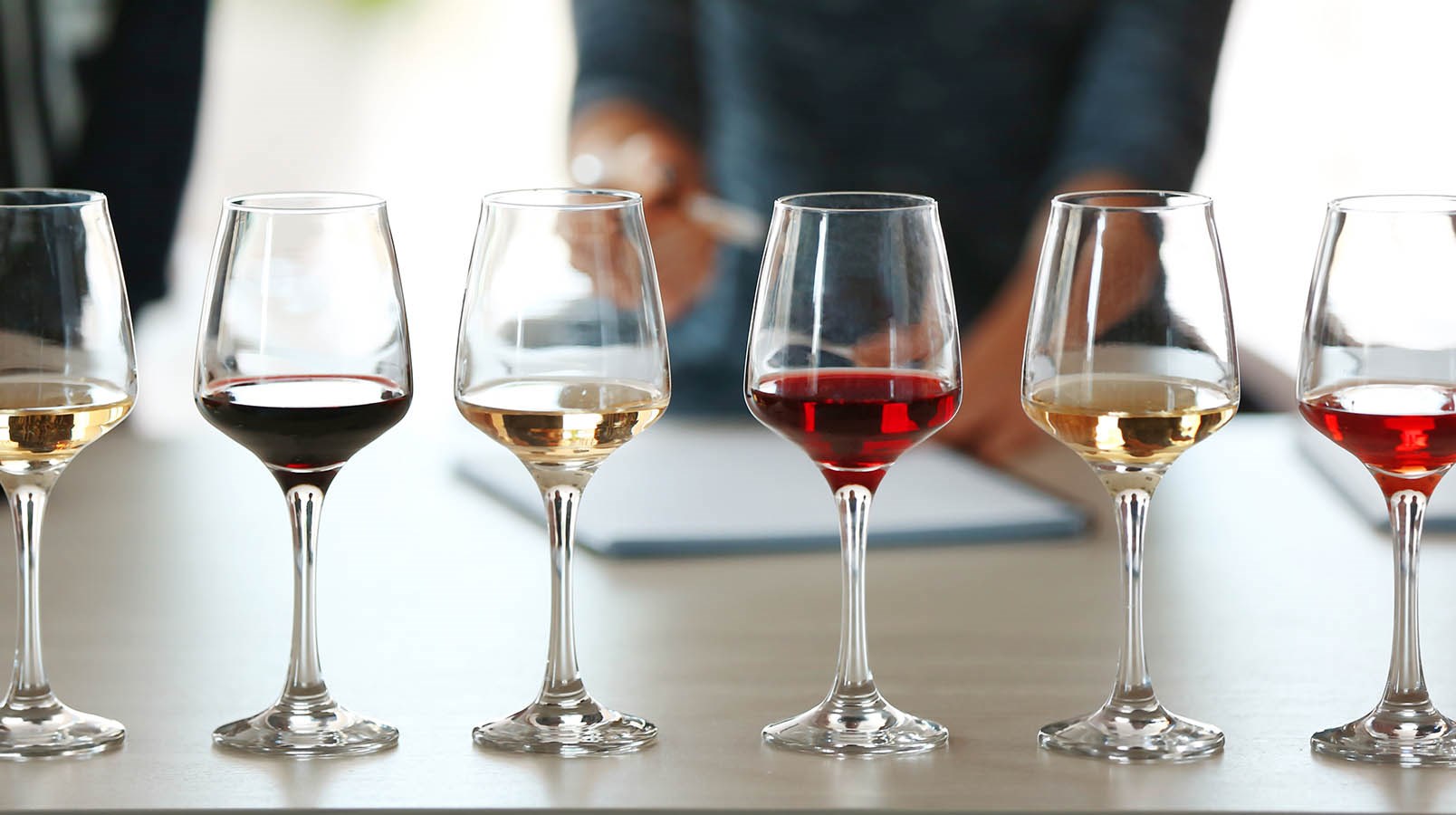As evidenced by the musicians, composers, lawyers and former financiers who are among the world’s leading wine educators, you don’t have to follow a predetermined path to earn a living teaching wine. For many, the role emerges as a synthesis of interests, talents and learned skills while others chart an intentional course with that specific goal in mind.
While the definition of the job title wine educator varies considerably, the qualities of an effective educator are universal. In surveying wine educators, all of whom arrived at their current roles in different ways, their mindsets and skills have far more in common than their paths to success.
Navigating your path
Most wine educators possess a varied background of wine-related professional experiences, but succeeding in the role relies largely upon excellent communication skills. While not essential, academic teaching experience is desirable and can be particularly helpful with time management.
In pursuing this rewarding career, educators can choose to be accredited by one of many highly regarded education organisations, such as the Wine & Spirits Education Trust (WSET)*, Court of Master Sommeliers (CMS), and the French Wine Scholar (FWS) among others, or to develop their own proprietary programmes.
The benefits of accreditation are many: resources that include respected syllabuses and course materials, set learning outcomes, administrative support and a like-minded global community along with the marketing power of an established brand. By aligning yourself with an organisation like the CMS or WSET which offers courses through a network of Approved Programme Providers (APPs), you’ll also be subject to oversight through monitoring for compliance, administrative requirements and annual fees.
Rhys Pender MW’s background provides a classic example, “I’ve been lucky to work in all aspects of the wine business from vineyard, winery, retail, wholesale and everything in between.” It’s fair to say that Pender came to wine education through food. “I caught the wine bug in 1998 while I was training at culinary school and I wanted to learn more,” he said. “I completed all of the WSET courses and then went after the Master of Wine.” Pender describes his desire to share his wine knowledge as a “logical progression”, one that was fuelled by his passion for wine and led to founding his own wine school, Wine Plus+, a WSET APP in Cawston, British Columbia, Canada.
Sybille Troubleyn, Managing Director of WineWise in Antwerp, Belgium, became interested in wine while she was learning about hospitality at Hotelschool Spermalie Brugge. After graduation she embarked on an ambitious tour of New World wine regions that resulted in a book “World Class Wine Routes” which she published in 1997. “When I returned to Antwerp I started organizing wine classes and I introduced the WSET curriculum to WineWise, which became a WSET course provider in 2003.”
Everyone I work with is equally passionate about wine and wants to share their knowledge. There is no snobbery, just passion for learning and sharing.
Rhys Pender MW, founder WinePlus+, Canada
Mainland China’s first wine Master of Wine, Fongyee Walker, who co-founded and directs Dragon Phoenix Wine Consulting in Beijing, China, discovered she enjoyed teaching wine while studying for her PhD at Cambridge. “Teaching wine to new members of the Cambridge Wine Tasting team was more fun than teaching the finer points of translating Classical Chinese into English,” she said. Walker is now well positioned in a market where the appetite for wine education is growing rapidly.
What the job entails
The time an educator spends in the classroom represents only one facet of teaching. Effective teaching requires adequate preparation and planning including writing or following curriculum, developing session plans, researching lectures and designing classroom exercises.
Typically, a wine educator will spend three hours preparing for one hour of classroom teaching. James Gore, formerly Principal at WSET School London, said “My greatest fear in the classroom is that I’ve not prepared enough, you know your students will soon sniff you out. Being prepared and confident in your presentation is essential”.
In addition, you’ll most likely be attending staff meetings and be responsible for some level of direct correspondence with your students. If you’re approved to proctor examinations, you’ll also be coordinating testing materials and wines for blind tastings.

Proctoring examinations may be one of your responsibilities
Teaching wine is a physical job that can involve transporting cases of wine, cleaning and managing glassware, mastering audio visual equipment and setting up classroom tastings, “Wine tasting represents approximately half of the time in the sessions, yet setting them up is often undocumented preparation time.” If you are running courses alone then you need to set aside a lot of time to get this right and make sure you review the wines when the new vintage comes in” confirmed Gore.
For Pender, Troubleyn and Walker, their job descriptions include running businesses that involve both administrative and management responsibilities in addition to teaching. “Managing people is the biggest skill required for my role,” said Troubleyn. “I answer questions, provide career counseling and because WSET is a global qualification, I’m working with students from all over Europe and all over the world.”
Many educators, like those who teach for WineWise and WinePlus+, work on a freelance basis with teaching being one of several different professional activities they pursue. Some, including Pender, also write about wine, “I get to travel through my writing which allows you to get a really up to date look at what is happening in the different wine regions of the world.”
What you need to succeed
Attaining a role as an educator for a large distributor, importer or retailer typically requires industry experience, a certain measure of seniority and one or more high-level qualification. These could include the titles of Master Sommelier, Master of Wine, DipWSET, French Wine Scholar or Certified Wine Educator.
Up to date information and the appropriate level of expertise required for the courses you want to teach and for your audience is a given. You don’t have to be a Master of Wine to instruct wine enthusiasts on proper tasting technique or to teach the characteristics of grape varieties but being well versed in your curriculum makes it far easier to lecture extemporaneously, engage students in dialogue and to bring your subject to life.
“Beyond SME [subject matter expertise], the essential qualities for our trainers are universal,” said Troubleyn who listed these:
- They must be good listeners as well as good communicators.
- Teach at the right level without being condescending.
- Be inclusive, so that no one is left out and the class progresses together.
- Not be arrogant.
Humility is the catch-all trait most frequently cited by educators as being essential to success. “Everyone I work with is equally passionate about wine and wants to share their knowledge,” said Pender. “There is no snobbery, just passion for learning and sharing.”
“Always have in your mind ‘is it in the best interests of the student?’ and you will not go far wrong" Gore agreed. "Sometimes ego can get in the way, but you must be prepared to be adaptable.”

James Gore DipWSET, lecturing at London Wine Fair
Wine education is, after all, adult education which has its own specific set of challenges. Students who work in the industry are particularly motivated when they can use what they learn to solve immediate problems. Dynamic educators know how and when to employ different teaching methods and learn which methods work best for them. By developing a teaching style suited to adult learners, one that teaches them how to learn the content, you become a far more effective educator.
Walker, for example, focuses on enjoying both learning and teaching. “Encourage students to enjoy the depth and breadth of the study and tell them to taste absolutely everything they can get their hands on. If you enjoy teaching, that sense of joy, achievement and delight in what you’re teaching will be transmitted to them as well.”
Professional development
As in any academic teaching environment, professional development and the pursuit of continuing education are essential for all wine educators. “I believe the aim of life is to learn continuously and to improve one’s own knowledge,” said Walker, a sentiment that’s echoed by many educators.
Given the ever-changing nature of the wine industry, keeping your product knowledge fresh is essential. “Judging wine competitions is a great way to taste a wide range of wines blind. It helps hone your tasting skills and gives you a real perception of quality without any bias,” said Pender. “I find I always get something out of any industry event I attend. If you go to these things with an open mind, you’ll always learn something.”
Always have in your mind ‘is it in the best interests of the student?’ and you will not go far wrong.
James Gore DipWSET, Principal at WSET School London
In Belgium, Troubleyn takes a break from administering and teaching at WineWise to travel twice a year to research and taste in the field. She had visits to Austria and Champagne on her calendar for 2016. “We ask our trainers to participate in industry conferences and attend study trips. We have a busy schedule of trade tastings here in Antwerp. Producer groups from major regions ask us to help organize tastings and we encourage our trainers and students to attend Prowein in Dusseldorf.”
The wine industry affords educators regular opportunities for continuing education by attending trade tastings, masterclasses, symposiums and technical conferences. Immersion study trips are offered through organizations including The French Wine Scholar, Court of Master Sommeliers and the Institute of Masters of Wine. Scheduling the time to take advantage of these opportunities requires a personal commitment to self-improvement.

The future classroom
From smart boards to smartphone applications, a variety of digital media is now finding its way into the classroom. “Teaching is more than knowledge exchange, it’s a shared experience through community,” said Troubleyn who has been offering online sessions from trainers in different regions, but sees that virtual classes are more popular with younger students. “Skype makes it possible for students to attend a class virtually when they’re not physically able to be in the classroom. We’ve also added a chat feature to our website which is inspiring more questions.”
For Gore, the classroom experience is still his biggest selling point, but he agrees keeping up with changes in how students want to study is key, “Our student demographic is much wider than it used to be so our educators have to adapt and be ready for anything, including understanding different learning styles and cultures.”
To Pender, it’s logical that more information will be delivered in an online format but there will always be tasting. “Tasting works best in a group environment so I think classroom-style teaching will continue to be important for wine education.”
Article prepared for WSET by Deborah Parker Wong, DipWSET
Keen to pursue a career in wine and spirits? Explore more options on our career paths page.
*All WSET Programme Providers are required to have a WSET nominated educator who must have completed WSET's Certified Educator Training Programme.


